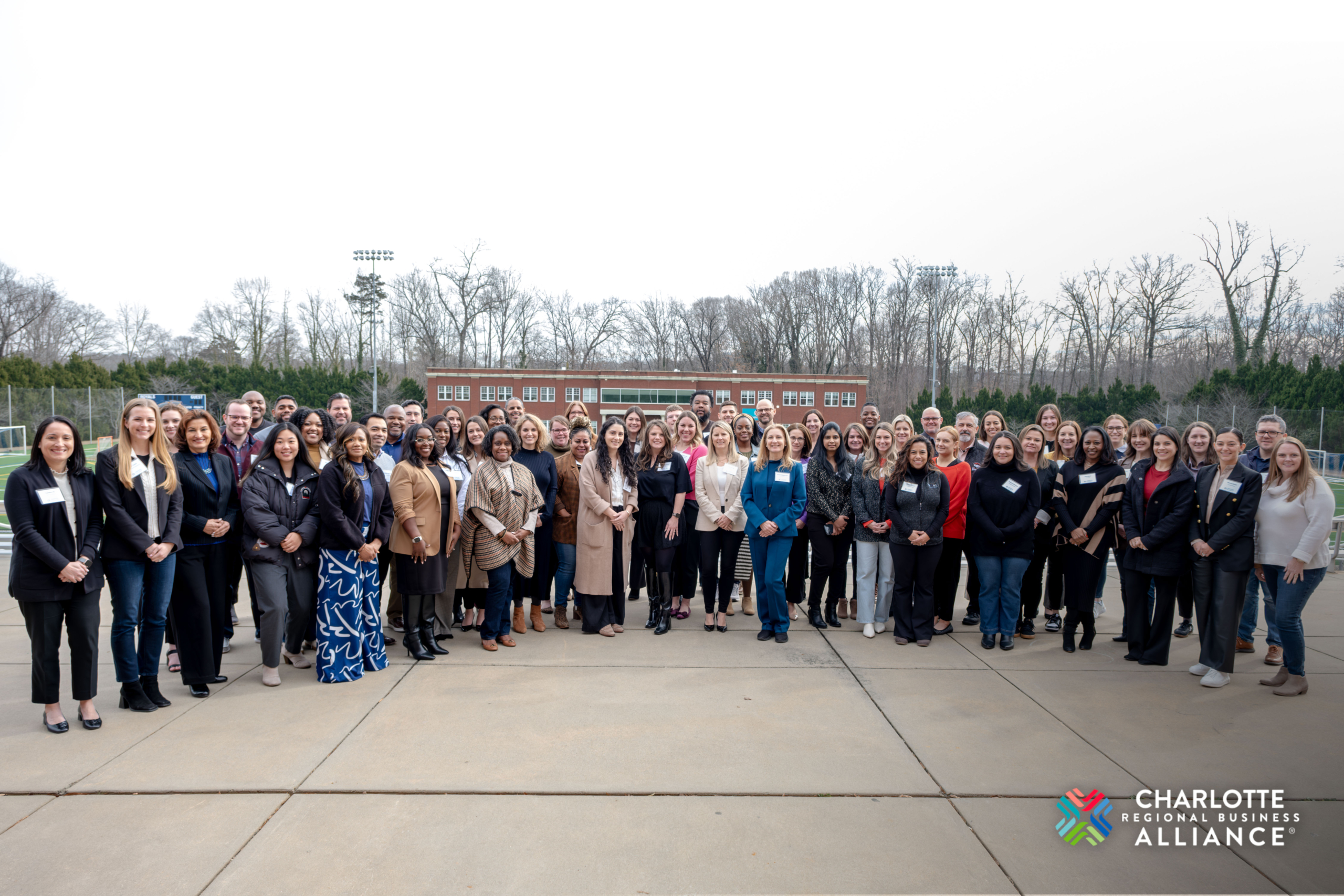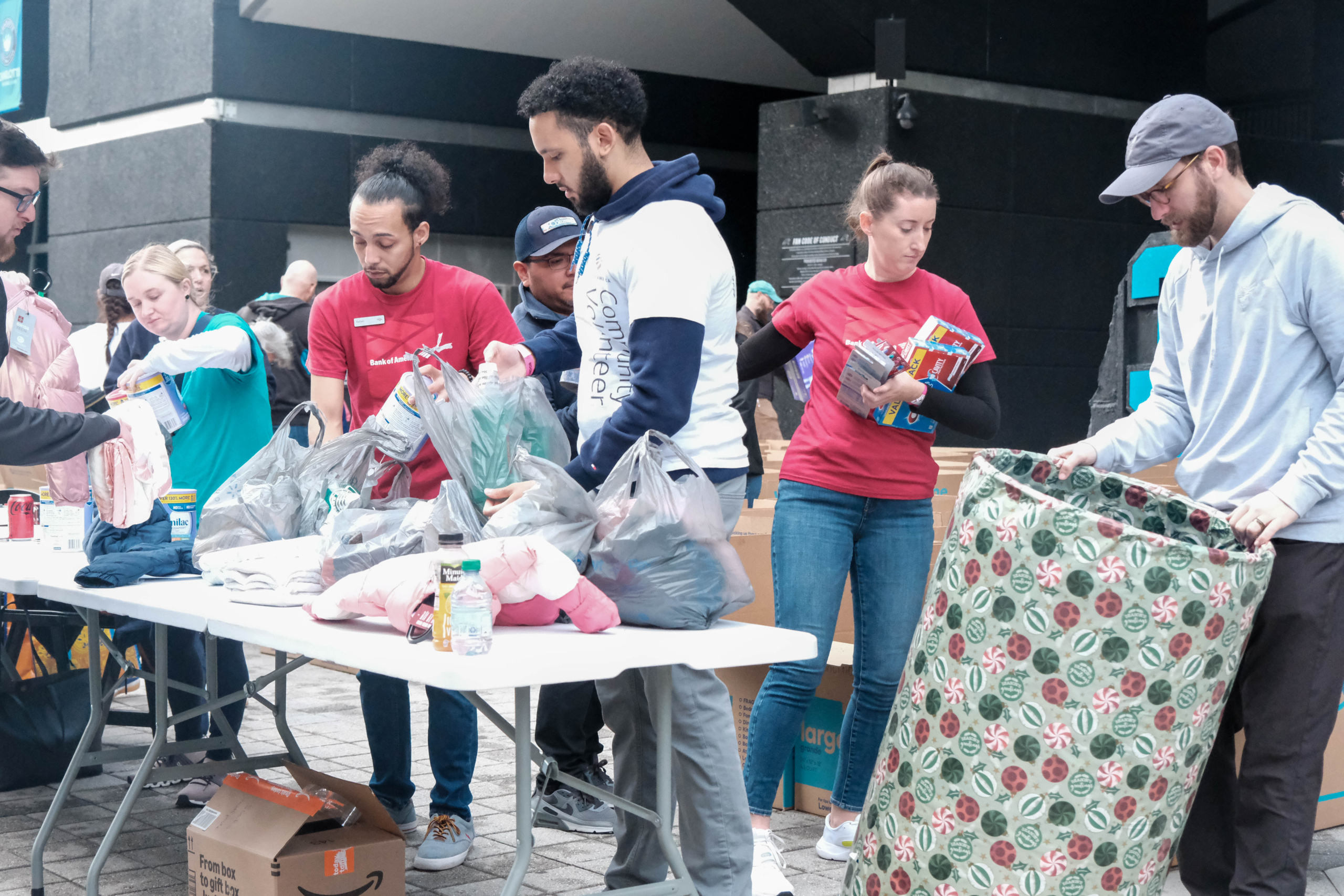One year ago, Mayor Vi Lyles announced a bold vision for our city’s future through the Mayor’s Racial Equity Initiative (MREI). The goal: For Charlotte to set the standard as an American city where racial equity, social justice, economic opportunity and upward mobility can be achieved through transformational public and private partnerships.
The mayor’s call for a corporate response to racial equity rallied the Charlotte business community to commit overwhelming support with the goal of $250 million for four priority focus areas within MREI. By providing funding to trusted community partners, the city’s business community joined with its public partners to significantly accelerate efforts to address racial equity in an impactful way.
Each priority focus area is led by partners who have natural community and business alignment to individual efforts. This approach is by design, as it places the efforts in the capable hands of those closest to the solutions. On this one-year anniversary of the initiative, we are providing an update on both the funding of the MREI and the key successes within each of the focus areas.
Funding Update
Financial support for the Mayor’s Racial Equity Initiative continues to be strong. The current total toward the combined public/private goal is $230 million of the $250 million goal. The private sector portion of the campaign currently stands at $147 million toward its $150 million goal and is expected to be met by the end of the year. We have confidence the full $100 million in public funding will be secured within a longer time frame.
The City of Charlotte has committed $62 million to the Corridors of Opportunity and $10 million to the Digital Equity focus area, with all city funds being managed directly by the city. The Charlotte-Mecklenburg Library committed $8 million to the Digital Equity effort as well. Mecklenburg County is considering a grant request in its recently announced funding cycle to provide additional support for Digital Equity. In addition, other funds will likely flow from federal dollars on a federal timeline.
Focus Area Updates
Bridging the Digital Divide — Center for Digital Equity at Queens University of Charlotte
With MREI funding, the Center for Digital Equity (CDE) has been able to build its internal infrastructure, hiring three new program directors to lead the key work streams for the organization. More than 13,000 laptops have been distributed through the effort, with the Center supporting the distribution of more than 3,500 laptops in the third quarter of 2022 alone. It also helped 900 families in Mecklenburg County learn about—and sign up for—the Affordable Connectivity Program, a federal program that helps low-income households pay for internet service and connective devices like laptops and tablets. In addition, the CDE has actively participated in or hosted more than a dozen community events providing on-site Digital Navigator services. The organization expects to make several major funding announcements from private philanthropy and government granting services in the first quarter of 2023.
Investing in Corridors of Opportunity—City of Charlotte
This focus area is moving forward with several impactful projects. A Staying in Place initiative to support neighborhoods and residents experiencing displacement has launched in three pilot neighborhoods in three of the corridors. The Albemarle Corridor is in the implementation phase with several projects, including the Business Innovation Hub Pilot and the Corridor Ambassador program as well as a redevelopment project for the former 77-acre Eastland Mall site. The Sugar Creek Corridor finalized its playbook of corridor improvements, launched a SafeBiz Camera Pilot to promote small business security, and is working with Safe Charlotte grantees to provide outlets for youth programming. West Boulevard has progressed on infrastructure and place-keeping projects, including the purchase of an underutilized shopping center, and the City of Charlotte is partnering with private developers in the Beatties Ford Road Corridor to renovate and re-tenant several key properties and revitalize key intersections. In the North Tryon/North Graham Corridor, the identification of priority themes and projects is nearly completed. Priorities for the first quarter of 2023 include kicking off the planning of the Freedom Drive/Wilkinson Corridor, prioritized implementation projects for North Tryon/North Graham, and continued implementation in the additional four corridors. Additionally, the first round of the Beyond Open Grant will be into its implementation with the Foundation For The Carolinas.
Transforming Johnson C. Smith University for the Future—JCSU
Throughout the last year, Johnson C. Smith University (JCSU) has experienced an outpouring of support from corporate and community partners unlike anything they’ve seen in the past—as evidenced by the record time in which this focus area’s $80 million goal was reached. This has allowed JCSU to move forward with implementation planning and the hiring of Nicole McDonald, who will lead this work as senior vice president of transformation initiatives. The university is also moving forward on two additional leadership positions for college and school deans who are critical to JCSU’s future state and began work on new marketing efforts to enhance brand awareness and increase student recruitment. Finally, the already-strong relationship between Atrium Health and JCSU has been further enhanced because of MREI. Atrium Health recently made a commitment through MREI to provide medical services to the university and its students, faculty, and staff, with enhancements and expanded services for the entire JCSU community.
Catalyzing Employer Commitment — Charlotte Regional Business Alliance
The Charlotte Regional Business Alliance® spent several months building out the strategic framework for the Employer Commitment focus area. An important next step in that process was to engage The KARS Group LTD, a change management and transformation firm, in August 2022, to help craft an action plan for the next phase of development. The KARS Group consulted community, stakeholder, and employer groups to craft a vision for what success looks like and how barriers can be removed. They hosted listening sessions, gathered input through a community survey, and met with several organizations. The response to date has been promising, and the CLT Alliance will present the findings and a draft of key milestones and action items to their focus groups to review and comment. The initial plan is anticipated for community review in the first quarter of 2023 and will include an outlined approach for implementation, support, development, and opportunities for partnership and growth. In addition, the CLT Alliance has partnered with the Southern Communities Initiative to amplify Charlotte’s MREI work nationally, sharing and learning best practices from metros spearheading similar efforts with employer-led commitments on hiring diverse talent and increasing the number of Minority Business Enterprises.
As you can see, there has been a tremendous amount of work accomplished in the inaugural year of the MREI—and we acknowledge that there’s much more work ahead. What we’ve seen in these first 12 months has surpassed all of our expectations, and gives us much hope and excitement as we head into year two. To our funders: A sincere thank you for your extraordinary generosity and support. We simply could not do this critical work to advance equity in our community without your commitment.



